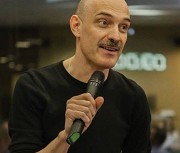Authors
Aleksei Titkov1; 1 The University of Manchester, UKDiscussion
The attitude of Russian citizens towards the full-scale war with Ukraine, which began in February 2022, is of research interest as an example of choice in a problematic situation. The general parameters of the problem are indicated by typical results of public opinion polls in Russia. According to them , about 2/3 of citizens declare their support for the 'special military operation' in Ukraine, while military intervention has never been a popular idea before, and a clear majority is ready to approve a halt to hostilities. The common explanation for these results—conformity and the spiral-of-silence effect—seems empirically sound but insufficient. Beyond such an explanation remain affectively charged moral arguments that rhetorically confirm or challenge different options for attitudes towards military conflict. The rhetoric for and against military intervention was visible, and thus accessible for study, in the grassroots debates of February-March 2022. The mass media, especially the opposition ones, described typical scenarios of such disputes between supporters and opponents of the military operation among relatives and colleagues, and between Russian and Ukrainian relatives. Paper focuses on one of the key stories in this grassroots debate: the incident in Odesa (Odessa), Ukraine on May 2, 2014. Then, during street riots, 42 pro-Russian activists were killed by deadly fire in the House of Trade Unions, which pro-Russian activists occupied, and pro-Ukrainian activists tried to storm. The accusatory narrative about this episode, circulated among Russian citizens, claims that Ukrainian 'fascists' allegedly 'burned alive' by purpose their opponents. In the grassroots debates of 2022, this episode was the basis for a typical rhetorical argument addressed to opponents of the war: 'why were they silent?' after the incident in Odesa. The purpose is to explain the popularity of the topic and its associated argument. In previous literature, the topic of the Odssa Fire 2014 is described primarily as an example of state propaganda, primarily on TV. The paper argues an alternative explanation that focuses on the crucial role of the social media melieu and the evolutionary selection that results from grassroots debates. The relationship between rational and affective components and their joint contribution to the narrative of the Odessa fire is one of the key focuses. The proposed sociological framework is based on neo-Durkheimian (Douglas, Yale School of Cultural Sociology), interactionist (Collins), neo-pragmatist (Boltanski and Thévenot) approaches. 

